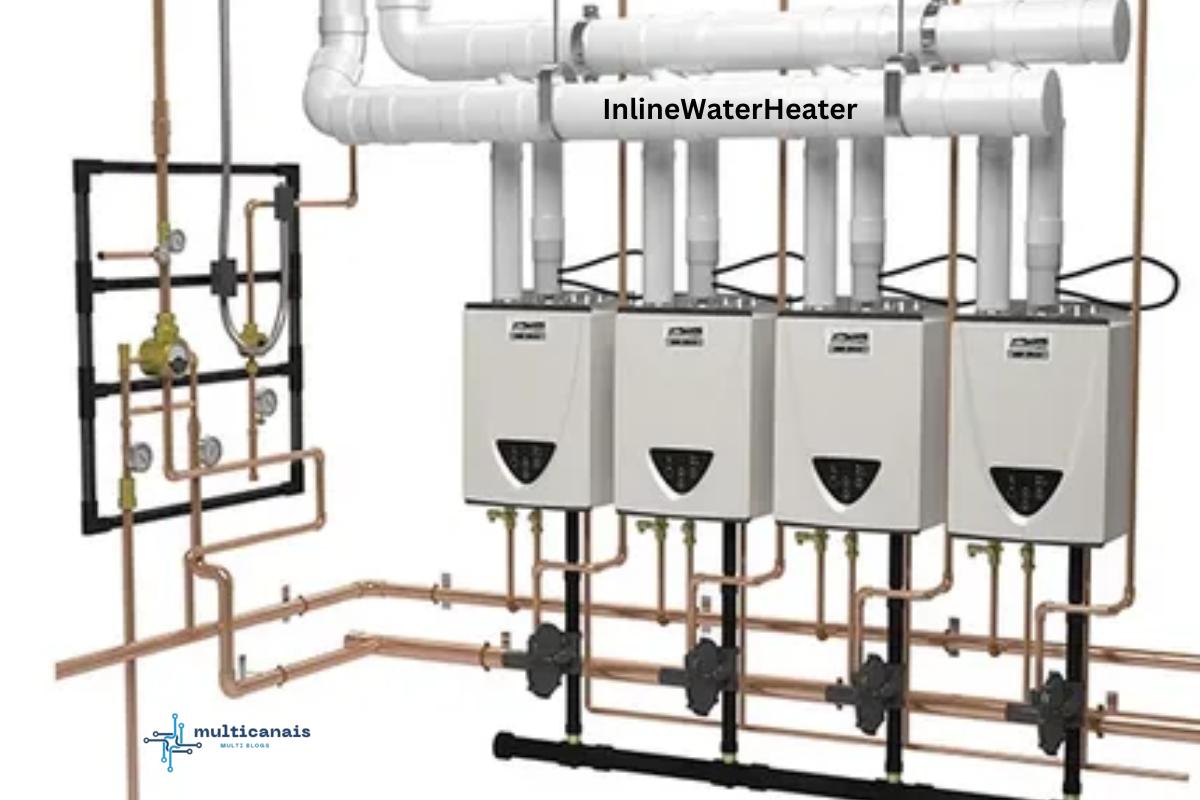For most homeowners, sustainability and energy efficiency are now the number one priority in the modern world.
Energy bills have been falling upwards steeply, and even more, environmental concerns are increasing. Due to these reasons, people opt for inline water heaters as the ultimate intelligent, green energy solution.
Inline water heaters, also referred to as tankless water heaters provide several benefits that make them an eco-friendly and budget-friendly choice for any household.
What Are Inline Water Heaters?
Inline water heaters, also known as on-demand water heaters, use water only when you need it. This means they do not store tons of water that are constantly reheated like the conventional systems.
That alone makes them an efficient water heating system since water does not waste energy keeping unused water hot in a tank. Inline water heaters will instantly heat water as it moves through the unit and bring you easy access to hot water at any time you want it.
This not only saves energy but also never lets the users run out of hot water, hence ideal for bigger families or homes where levels of demand exist.
Why inline water heaters should be your green energy solution
Inline water heaters are mainly celebrated for their efficiency in saving energy. It is a direct comparison of the regular water heater. Hence, it saves up to 30% of the energy compared to the traditional one.
This feature of saving energy helps keep your place carbon-free while helping you lead a more sustainable life. In addition, inline heaters are durable, resist for a long time, and their maximum lifetime can be up to 20 years; the traditional heater lives no longer than 10 to 15 years.
The longer lifespans cut the rate of replacement of these entities; hence, waste from manufacturing and disposal processes will be lower. Therefore, this approach is more environmentally friendly.
Key Benefits of Inline Water Heaters for Your Home
- Cost Saving: You can save much of your energy expenditure with an inline water heater. It only consumes energy to warm up when hot water is utilized; hence, it does not consume much electricity or gas, which can save money for you in terms of decreasing what you have to pay for your utilities monthly.
- Space-Saving Tankless water heaters are slim and space-saving. Compared with a conventional water heater, these have ideal dimensions. They don’t take up too much space, thus suitable for small houses, apartments, or any other person who wishes to maximize storage. As they have a wall-mount design, tankless water heaters can also give flexible installation orientations in tight spaces.
- Unlimited Hot Water: An on-demand heater will never leave your household to worry about running out of hot water, just in case several people have to take showers one after another. Inline systems heat water instantly, so you don’t need to wait for a tank to refill and reheat.
- Inline water heaters are not only reliable, but they require a very low amount of maintenance, as unlike the old-fashioned water heaters, the former has a relatively long life and thus tends to be replaced or repaired less often. Also, there is no tank to clean, which nullifies all corrosion worries; the inline water heaters are low on maintenance but high on performance.
Inline Water Heaters vs. Traditional Water Heaters
Traditional water heaters are the most common products throughout history; however, by far, they are less energy efficient than their tankless variants. Traditional systems continuously heat and reheat both used and unused water, wasting energy and raising utility costs.
This means that an inline water heater heats water on demand, thus ensuring that a lot of energy is not used during its operation. They are therefore much more eco-friendly and cost-effective for homeowners who intend to save some energy and pocket a few dollars in the process.
Another way is that the traditional water heaters also consume much space, but these systems use water tanks that occupy too much space, making the inline water heaters suitable for those who would love clearing up the space because they are compact and come in preset installation on a wall.
Not just that, but inline water heaters have a longer life span than the standard ones, so would be replaced much less frequently over time, thus more sustainable and long-term investment.
Inline Water Heaters and Green Energy Initiatives
Inline water heaters fit quite well into green energy solutions as the world shifts toward more sustainable energy solutions. Further in this line, they can be powered with renewable energy sources such as solar panels, which further complement their status as ecologically friendly.
Most US governments and states offer rebates and incentives for homeowners who turn to energy-efficient appliances, which include the efficiency of tankless water heaters. Such incentives make it even cheaper to adopt greener technologies.
FAQs
What are the installation costs for inline heaters?
Installation for an inline water heater usually runs between $1,000 and $3,000 depending on the unit chosen and any other plumbing requirements. Location and labor costs will always dictate the price quoted. Again, shop around for quotes from licensed plumbers to get the best price.
How soon will I see energy savings?
It will typically be apparent that with an inline water heater, savings can be noticed in one to three months from the date of installation, depending on usage patterns and rates. Most homeowners will find benefits occurring within the first billing cycle.
Can it easily integrate with solar panels?
Yes, inline water heaters can easily integrate with solar panels, enhancing energy efficiency. They can be connected to solar water heating systems, allowing you to harness renewable energy for hot water needs. This combination maximizes savings and reduces your carbon footprint.
What maintenance is required for inline heaters?
Inline water heaters require a minimum of maintenance, including descaling periodically to prevent the buildup of minerals, checking filters, and ensuring proper ventilation. Testing your unit from time to time will keep your unit working efficiently and as long as you need it to while being leak-free and having the correct temperature settings.
Does water flow reduce with multiple uses?
Yes, the flow may reduce in many applications simultaneously because inline heaters have a fixed rate of flow. However, they normally satisfy the average household requirements of most homes if sized adequately. For high demand, look for a version with higher capacity
Conclusion
Inline water heaters are the best fit to make the quest for a green, efficient water heater more feasible. They are energy efficient and decrease the utility bills paid by homeowners.
They guarantee an infinite supply of hot water while saving your carbon footprint. Whether you are constructing a new house or replacing your existing water heater, selecting an inline water heater is one step toward a greener, earth-friendly future.
Discover in-line water heaters today and experience the benefits of saving energy, being convenient, and being an environmental helper!
Call to Action
Ready to make the switch to a greener, more efficient home? Upgrade to an inline water heater today and enjoy energy savings, unlimited hot water, and reduced carbon emissions.
Take a step toward sustainability and start saving both energy and money. Explore your options now for a smarter, eco-friendly future!
More Read: Ride Smart How Electric Bikes Boost Green Mobility


1 thought on “Inline Water Heaters Sustainable Choice for Green Energy”